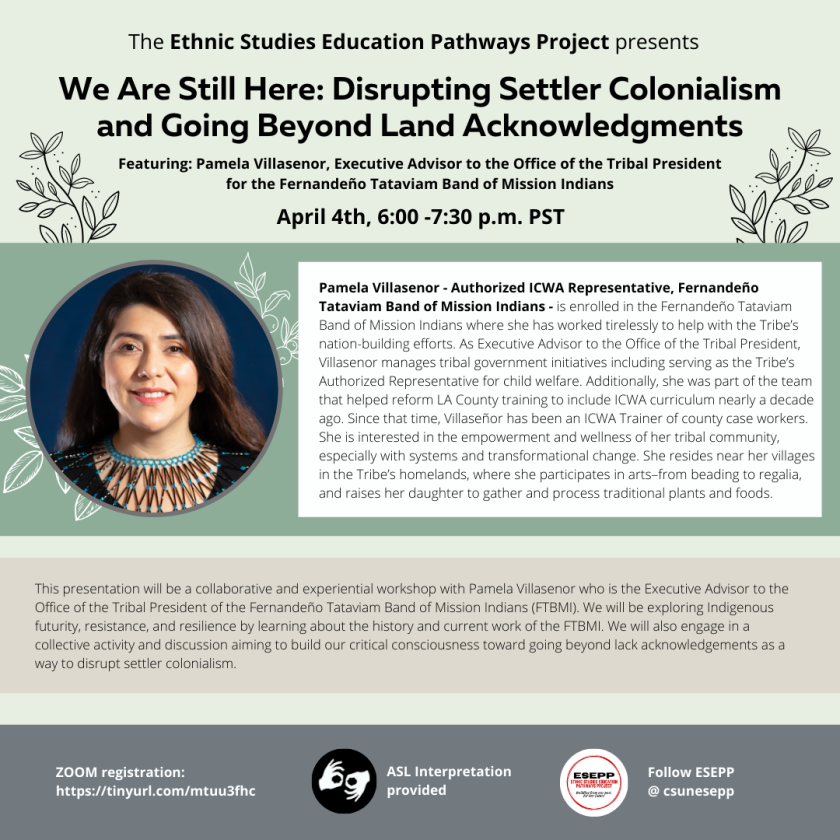Monday, April 4, 2022 - 6:00pm to 7:30pm
Location:We Are Still Here: Disrupting Settler Colonialism and Going Beyond Land Acknowledgments
Featuring Pamela Villasenor, Executive Advisor to the Office of the Tribal President for the Fernandeño Tataviam Band of Mission Indians
April 4th, 6-7:30pm (PST)
Register for Zoom Link: https://tinyurl.com/mtuu3fhc
ASL interpretation provided

This presentation will be a collaborative and experiential workshop with Pamela Villasenor who is the Executive Advisor to the Office of the Tribal President of the Fernandeño Tataviam Band of Mission Indians (FTBMI). We will be exploring Indigenous futurity, resistance, and resilience by learning about the history and current work of the FTBMI. We will also engage in a collective activity and discussion aiming to build our critical consciousness toward going beyond lack acknowledgements as a way to disrupt settler colonialism.
Pamela Villasenor - Authorized ICWA Representative, Fernandeño Tataviam Band of Mission Indians - is enrolled in the Fernandeño Tataviam Band of Mission Indians where she has worked tirelessly to help with the Tribe’s nation-building efforts. As Executive Advisor to the Office of the Tribal President, Villasenor manages tribal government initiatives including serving as the Tribe’s Authorized Representative for child welfare. Additionally, she was part of the team that helped reform LA County training to include ICWA curriculum nearly a decade ago. Since that time, Villaseñor has been an ICWA Trainer of county case workers. She is interested in the empowerment and wellness of her tribal community, especially with systems and transformational change. She resides near her villages in the Tribe’s homelands, where she participates in arts–from beading to regalia, and raises her daughter to gather and process traditional plants and foods.
The ESEPP is a DEIG-funded initiative that partners CSUN students with practitioners in the field to cultivate Ethnic Studies approaches to K–CC education careers in teaching, counseling, and social work. Please share with your students, colleagues, and networks!
